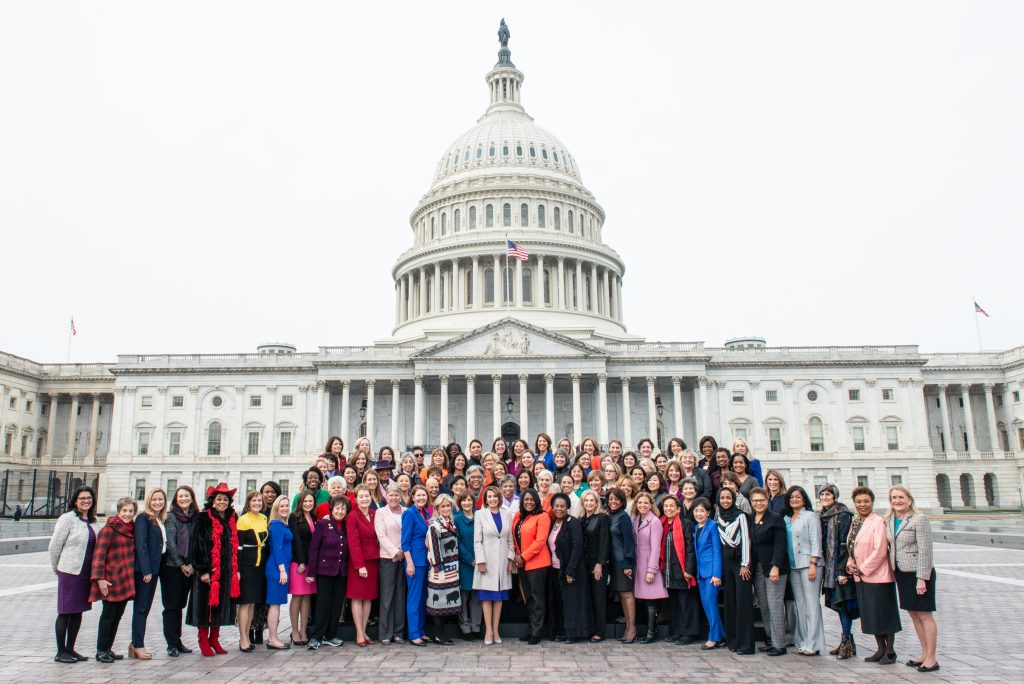I spend so much time alone, pondering and praying, that I sometimes forget much of the world holds very different views than I do.
The other day, for example, while talking to a secular friend, I (very unwisely) burst forth with an impassioned description of an essay I was working on.
“It’s about womanhood, and how really the heart of what is best and most glorious about women is their ability to bring new life into the world! You don’t have to be an actual mother, obviously, but the heart of a mother! I can’t get behind this cold-blooded, aggressive fury that seems to be the overriding emotion of today’s ‘feminists.’ ”
Silence. Then — “I can’t say I agree with you. I think it’s fantastic that so many women have been elected to office recently.”
“Well, yes, or rather maybe. Because if they come at their jobs with the same adversarial, power-driven tactics they purport to despise in men, we’re just going to have the formerly oppressed as the new oppressors.”
It devolved from there. My friend thought everything was going to be solved by the new class of warrior women, and I could not be moved from my view of the culture as on every level virulently anti-life.
“Can you not see the absolute breakdown of the human family, and how it’s responsible for so much of the poverty and violence and suffering in our culture?” I pleaded.
“Not really. Can you give me some examples?”
“Both parents working 60-hour weeks, teenagers committing suicide, this insane mania for guns. We have all these ‘rights,’ reproductive and otherwise, but everyone is so unhappy! They’re lonely, they’re depressed, they’re anxious, they’re angry.”
“Gay people at least aren’t having children, which is good because we need to keep the population down.”
“The population down! We’ve reached a negative birth rate. People are not only not having kids, they’re not even having sex!”
Again, silence.
“Okay, let’s just stop there,” I said, a touch desperately.
“Well, wait. Do you mean to say you feel the answer is for the whole country to become … ‘Christian’ again?” chuckled my friend (who, like everyone in my life, knows I’m Catholic). “’Cause I don’t see that happening any time soon.”
“Not the country — the world,” I replied in a strangled voice. (Later I wished I’d had the presence of mind to add, “And not again, but for the first time,” a G.K. Chesterton-like witticism that of course evaded me in the moment).
Instead I continued: “Let’s just agree we’re very far apart. … But … all I can say is that I live and breathe … every heartbeat is grounded upon … God made man … the Gospels,” I trailed off.
It would be nice to have a neat, tidy 10-point bullet plan, an unassailable thesis, an uplifting TED Talk with a message able to be commodified, packaged, and marketed — but that’s not how Christianity works, because that’s not how life or reality work.
Plus I can hardly be surprised when others aren’t bowled over by my “faith,” especially as I stand before them with my terrible inconsistencies, faults, tepidity, and general incoherence.
Later, though, I thought about how Christ said in so many words: Don’t worry about what you’re going to say when they haul you before the courtroom. The Holy Spirit will intercede for you and give you the appropriate words (see Luke 12:11-12).
The court of public opinion, backed by the threat of ridicule by our peers, is one the follower of Christ stands before, quaking, every day. But upon reflection, my words had been just right, or as right as they could be. I don’t have a put-people-in-their-place apologetics. I have my heart.

St. Elizabeth Ann Seton is depicted in a stained-glass window at the Basilica of St. Patrick's Old Cathedral in New York City. (CATHOLIC NEWS SERVICE/GREGORY A. SHEMITZ)
This month we celebrate the feast of St. Elizabeth Ann Seton (1774-1821), the first native-born American to be canonized by the Catholic Church. Then, as now, if for slightly different reasons, Catholics were viewed with suspicion and distaste.
Already bereft following the death of her husband abroad, she’d returned from Italy to America in 1804 an impoverished single mother with five children to support. And certain relatives threatened to cut off all means of support should she enter the Church.
She nonetheless managed to convert, to establish a religious community, and to found a school for girls in Emmitsburg, Pennsylvania, that would become the blueprint for parochial education in the U.S.
For my own (much smaller) part, as I floundered for words, I sent up a prayer, changed the subject, and eagerly sought the many places where my friend and I do meet. We ended by reassuring each other that we treasure our conversations.
As St. Elizabeth Ann Seton observed, “How safe we are under the shadow of the cross.”
Heather King is a blogger, speaker and the author of several books. For more, visit heather-king.com.
SPECIAL OFFER! 44 issues of Angelus for just $9.95! Get the finest in Catholic journalism with first-rate analysis of the events and trends shaping the Church and the world, plus the practical advice from the world’s best spiritual writers on prayer and Catholic living, along with great features about Catholic life in Los Angeles. Subscribe now!

